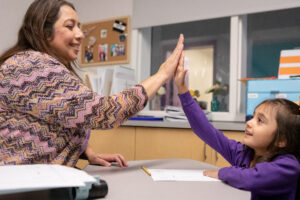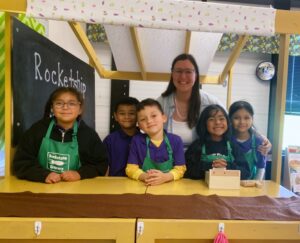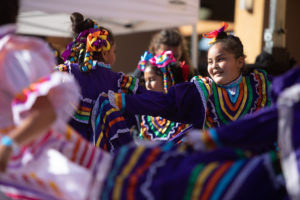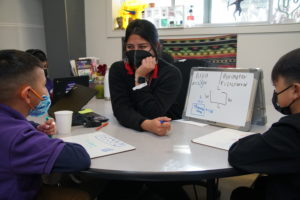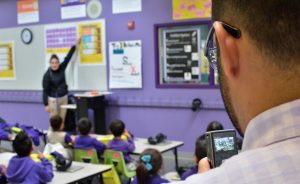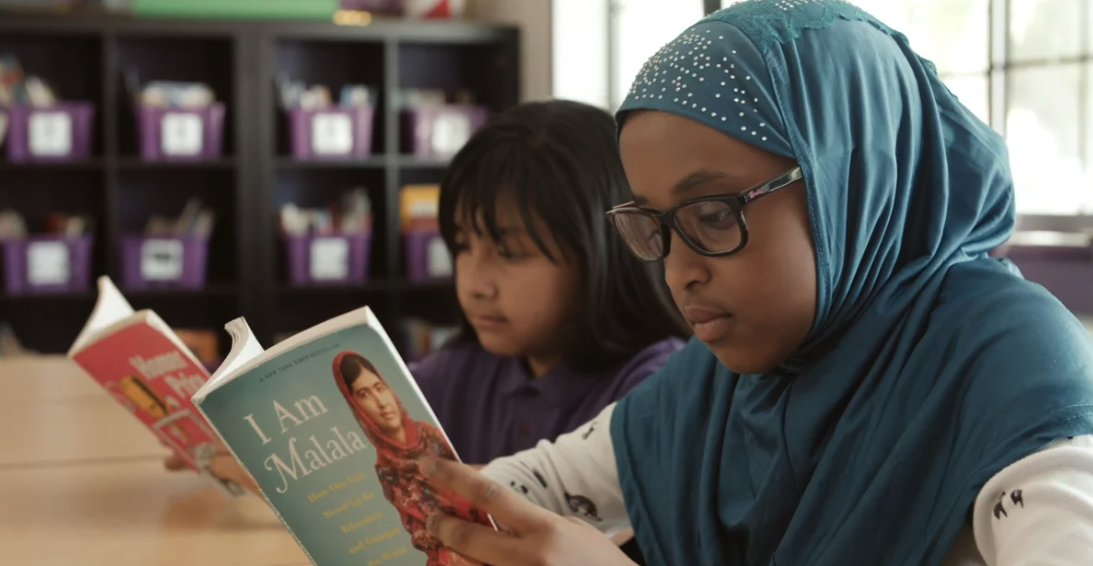
Why We’re Revamping our Humanities Curriculum with an Anti-Racist Lens
Eesir Kaur, Senior Director of Humanities and Professional Development
So often in our lives, and perhaps most acutely in education, we start from a place of scarcity – what do students not know? What gaps or misconceptions do they have? What skills and knowledge are they missing? While these are important questions to consider, diversity, equity and inclusion conversations have a stronger tendency towards plenty, often focusing on celebrations of our unique differences.
When we embarked on DEI work as a Rocketship National Humanities Team, we started with that perspective of plenty – we serve such a rich and diverse community. Our teachers and leaders have joined our organization because of this, and come with different experiences and perspectives. So, we began with the question: how do we better understand one another and our histories?
Yet, before we began to explore how to create culturally relevant classrooms, we felt it was critically important to define what we mean by culturally responsive teaching. Borrowing from Ladson-Billings’ work, our approach focuses on student academic success, cultural competence, sociopolitical consciousness, and social emotional learning, as well as working together at all times.
Our reflections as a Humanities team, coupled with the invaluable feedback from our powerful collective team of teachers and leaders, helped us recognize that while we were making significant progress towards academic success, cultural competency, and embedded social-emotional learning, we were quite a ways away from creating opportunities for sociopolitical consciousness.
Once we defined our key focus, we moved quickly and began to ask ourselves: what does it mean to be sociopolitically conscious? As anyone who is engaging in this work will tell you, it’s messy and imperfect. Our conversations, in the early stages, were really focused on activities – let’s celebrate Cesar Chavez Day or Indigenous People’s Day. Yet, those celebrations, while important, don’t allow for deeper discussion to examine a system built upon inequities, and therefore, limits our agency to dismantle that system. In reflection, we weren’t truly considering how all of the pillars (academic success, cultural competence, sociopolitical consciousness, and social emotional learning) were working together to foster critical consciousness, consumption and inquiry and were instead far more focused on creating superficial, packaged solutions.
The more we engaged in our own learning and understanding though, the clearer it became to us that we had to create a contiguous experience for our students – how do we create opportunities to discourse and write on rich topics? Do our students see themselves represented in the stories they read? Do they have opportunities to embrace other cultures and perspectives through the literature? How do we help our students explore historical topics like the American Revolution and Colonial America through the eyes of Black and Indigenous Americans?
These questions helped us refine the key topics of the thematic units, and now we’re in the process of designing a sample unit on Colonial America, which we will share with our working group in early November for additional feedback and revision. Designing this unit was a real turning point for our team because we discussed and debated incredibly important questions. Challenges unique to elementary schooling emerged. We didn’t (and still do not) have texts which represent the perspectives of diverse cultures during this time period, so we’re really working with a rather romanticized version of American history. And when diverse perspectives do exist at the appropriate elementary reading levels, they are either historically inaccurate or begin the history of African, Latinx and Indigenous Americans as slaves in America, which is wrong and disrespectful to our kids and communities.
So we’re taking these primary and secondary sources, and thinking about the questions readers should ask themselves – Who is represented? Who is missing? Why? From there, we’re designing an entire learning experience which gives educators space to consider local context and cultures, focuses on generative learning, and culminates in rich projects like writing a letter to your local officials, urging them to celebrate and designate the second Monday of October as Indigenous People’s Day.
This is just the beginning of a long road ahead, but we’re eager to see how students respond in the classroom. We’ll continue to use this space to share our learnings with you.
Next up, we’ll share how we approached our text audit in case you’re interested in doing the same.
Published on September 10, 2020
Read more stories about: Equity, Uncategorized.
In the Classroom
Parent Conference Tips for First Year Teachers
Jeremiah David, Paraprofessional, Rocketship Dream Community Prep | January 6, 2025
Looking for top parent conference tips? Prepare with advice from our educators.
Read more ⟩First Year Teacher? Here are Five Mistakes to Avoid.
Jeremiah David, Paraprofessional, Rocketship Dream Community Prep | November 1, 2024
See what mistakes most first year teachers make and how you can get ahead this school year with some simple tips from a fellow educator.
Read more ⟩3 Classroom Systems New Teachers Swear By
Rocketship Public Schools | Sept. 30, 2024
As a first year teacher, establishing a smooth and productive classroom environment can feel a tad overwhelming. Thankfully, these simple strategies can go a long way.
Read more ⟩How Co-Teacher Collaboration Can Benefit Your Classroom
Featuring Alejandra Chavez, Education Specialist at Rocketship Mosaic Elementary | June 10, 2024
Hear from Ms. Aly about how a small team of educators can make a big difference in student outcomes through thoughtful planning, focused collaboration, and personalized accommodations. Ms. Aly was one of our highest-performing educators in California for the 23-24 school year.
Read more ⟩How to Spark Joy in ESL Classrooms with a Multilingual Learning Clubhouse
Featuring Ms. Amy De La Rosa, Multilingual Specialist, Nashville Northeast Elementary | June 1, 2023
Listen in to an audio interview with Amy De La Rosa, a Multilingual Specialist who has worked as an educator for over 14 years and found an innovative way to help her students learn English in a more accelerated, playful way.
Read more ⟩Supporting Parents of Multilingual Students in Family/Teacher Conferences
Emma Volpe, Rocketship United Academy | June 1, 2022
Get thoughtful insight on how to create a more inclusive family-teacher conference environment.
Read more ⟩5 Ways to Strengthen Relationships in the Classroom
James Cross, Assistant Principal, Rocketship Nashville Northeast Elementary | February 20, 2022
A new age of education calls for a new level of connection. Here are some key tips to strengthen relationships in your classroom this school year.
Read more ⟩5 Ways School Leaders Can Coach and Support Teachers
Eesir Kaur, Director of Professional Development | October 15, 2020
Are you a school leader looking to coach your teachers more effectively? Here's what works for us.
Read more ⟩




